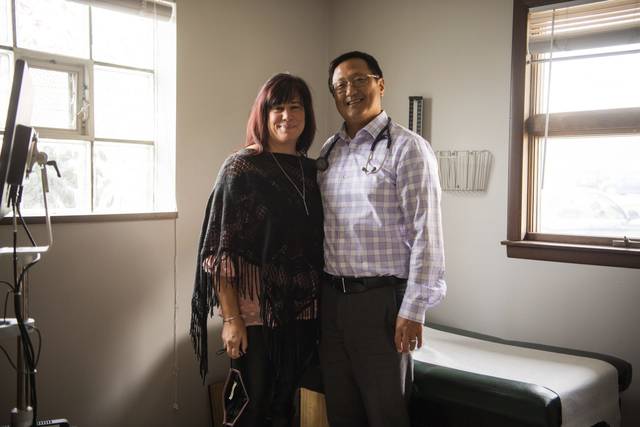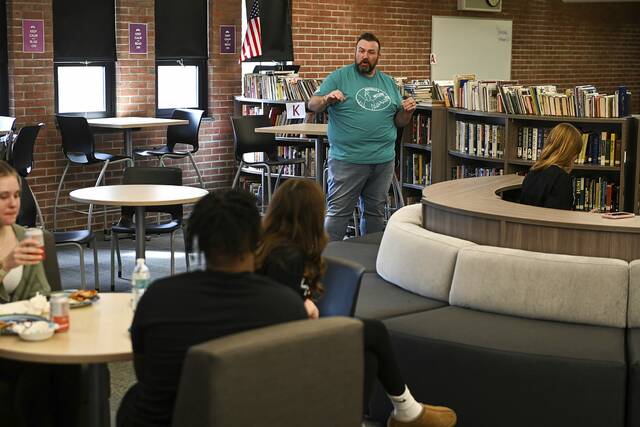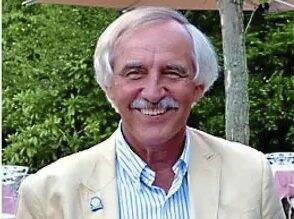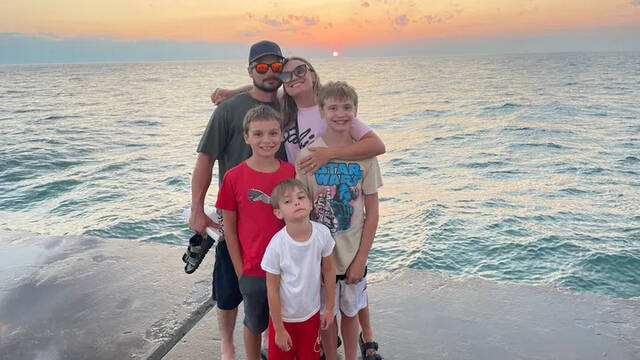Editor’s note: This is the third in a series highlighting five people whose lives were reshaped by the coronavirus pandemic.
The coronavirus had a clear and, some would argue, promising path into Dr. David and Louisa Shin’s O’Hara home.
A primary care physician, Dr. Shin, 52, works for Allegheny Health Network. He’s been on staff at Allegheny Valley Hospital in Harrison since 2003 and has offices at Heights Plaza and at The Waterworks mall near Aspinwall.
A former physician’s assistant for 15 years, Louisa Shin, 48, has been a stay-home mom for eight years, raising their four sons — David, 19, Anthony, 17, Michael, 14, and Joseph, 12.
As of mid-November, Dr. Shin had seen about 50 patients with covid-19 at Allegheny Valley Hospital. As of mid-December, more than 2,800 people were hospitalized with covid-19 across Allegheny Health Network, with 218 at Allegheny Valley Hospital, since March 15, a spokeswoman said.
As of Dec. 26, the state Department of Health said nearly 18,500 of the state’s 605,000 covid-19 cases, or about 3%, were among health care workers.
With the protocols AHN put in place for keeping its physicians safe, the couple of 20 years was not overly concerned about him being exposed to the virus at work and bringing it home to the family.
“I felt that the hospital, as well as the system, had a good process in place,” Dr. Shin said. “It decreased my anxiety about it.”
But while that avenue was guarded, another was not: A routine visit from a friend would expose them both.
“I’m still surprised that it actually happened,” he said.
While they can’t be 100% certain, Louisa Shin believes she was exposed to the virus by a friend and that Dr. Shin, in turn, contracted it from her.
Because Shin’s work in the hospital could pose a risk, Louisa said they decided not to have anyone over or gatherings at their home. If their sons had friends over, they stayed outside.
“We were smart about it,” she said, “or as smart as we could be.”
Dr. Shin wasn’t there when his wife’s friend visited one day in early July. Louisa said the woman came by to drop something off, and they sat down and caught up for a bit over an hour or two.
“The next day she called and said she wasn’t feeling well, and these were her symptoms. David said, ‘You need to get tested,’ ” Louisa said. “He immediately quarantined me just to see if I developed anything. Within two or three days from that, I started showing symptoms.”
Despite Louisa separating herself from her husband and sons within their home, as soon as they learned their friend wasn’t feeling well, they believe Dr. Shin contracted the virus from her in the six-to-12 hours between the visit and when they heard from her.
He got tested the day after his wife’s positive result came back.
“Even though I had zero symptoms, I tested positive,” he said.
Before his test result, Louisa said her husband felt great and had no reason to think he was at risk based on the actions they took.
“We were kind of confused as to how he was positive,” Louisa said. “It was a little perplexing why he would test positive based on how we did our best to separate. We may never know how that actually came about.”
None of their sons showed symptoms, so Louisa said they assume they had not contracted the virus. Dr. Shin said David was tested after losing his sense of smell, but that was chalked up to allergies. He tested negative a second time before heading to college at the University of Michigan.
Except for a couple of days where he felt tired and slept more than usual, Shin said he was not severely affected. While not working except for tele-visits, he kept himself busy pruning trees in his yard, planting a garden and staining his deck. He went for a 2-mile run on his first day off quarantine and felt OK.
Louisa’s experience was quite different.
“I felt like it really kind of wiped me out, for someone who’s pretty active. It was where I felt like I couldn’t really function,” she said, adding that it would come and go. “I would have symptoms, and then I would feel a little better.”
Louisa said it took her a month to fully recover, with feeling tired taking the longest to get over.
“Once that one-month mark came, it was like a light switch,” she said. “This is done.”
Although they each had the virus, Louisa said her husband decided they would continue to quarantine from each other, since she was sicker than he was.
“He just felt like, let’s keep what we have going on and get through it,” she said.
Louisa separated herself from her family for about 20 days, which was difficult.
“I’m the organizer and the leader here, as most moms are,” she said. “I helped take care of meals, laundry, everyday stuff. It was difficult to keep me in a room. We managed.”
The Shins said friends and neighbors stepped up to help them, such as by bringing food to their doorstep.
The Shins say they have recovered from their experiences with coronavirus without any lingering effects. Louisa said her friend recovered as well.
“David and I both feel like this is what’s presented to us and we will deal with it and we’ll get through it,” Louisa said. “We can’t change what’s going on. We’re living through it, and we’re doing the best we can with that.
“We want to be smart and safe, and we’re enforcing that with our kids. This is still around, it exists,” she said. “Whatever we can do to be smart and safe and consistent with our decisions is the best way to try to approach this.”
As a physician, Dr. Shin said an impact of the pandemic will be among people with chronic diseases, such as diabetes and congestive heart failure, who were afraid to see their doctors for fear of contracting the virus.
“The big wave we’re bracing for is: Will patients who might have neglected their care have more side effects and complications?” he said. “We’re starting to see some of it as the patients start to trickle back.”
While his own experience with the virus was not difficult, Dr. Shin said people need to take it seriously.
“It’s a virus that can affect a lot of people in different ways,” he said. “If you’re at risk, you need to be really careful about it.”








